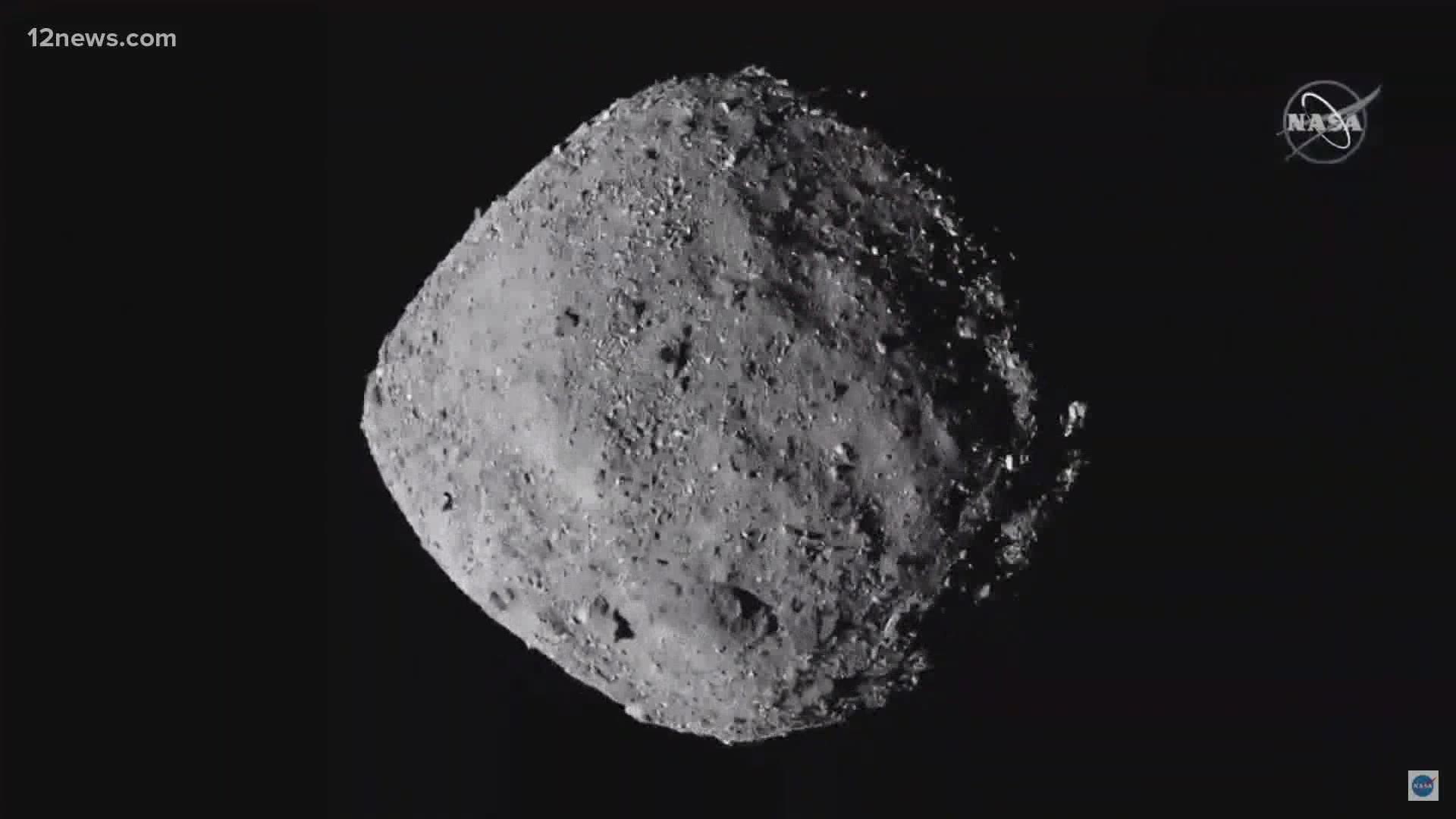ARIZONA, USA — Editor's note: The above video aired during a previous broadcast.
Samples from the asteroid Bennu are headed to the University of Arizona on a spacecraft after the historic NASA OSIRIS-REx mission departed the asteroid Monday afternoon.
The spacecraft, organized by scientists from UArizona and NASA, spent nearly two years observing, photographing and sampling the asteroid, the university said in a news release.
The team made history many times during the mission, the university said, including orbiting the smallest celestial object ever orbited by a human-built spacecraft and bringing the largest sample collected by a NASA mission since the Apollo 11 moon landing.
"During NASA's departure broadcast, scientists will reveal new imagery from the mission's final flyover of Bennu and talk about the hair-raising moments of sample collection and how the team engineered its way out of problems that threatened the mission," mission leaders said.
The OSIRIS-REx spacecraft is scheduled to return to Earth in about two years. The samples it brings back with it could answer some of humanity's foundational questions when it comes to the origins of the universe, the university said.
"Science is about hope," Dr. Thomas Zurbuchen, the associate administrator for the Science Mission Directorate at NASA, told 12 News when the spacecraft originally landed on the asteroid's surface seven months ago. "Questions that OSIRIS-REx is addressing about the origin of the Earth, the origin of life itself, are about the hope of understanding and helping to pull us forward into a world we don't understand yet."
Dr. Michael Drake, the former director of UArizona’s Lunar and Planetary Laboratory and head of the Department of Planetary Sciences, created the first proposal for the mission several years ago. The proposal was chosen by NASA and had the best idea out of a pool of others.
After Drake died due to liver cancer in 2011, Dr. Dante Lauretta from UArizona took over the mission.

